What To Do If Your Economic Impact Payment Is Wrong
I think the amount of my Economic Impact Payment is incorrect. What can I do?
On March 27, 2020 President Trump signed the $2 trillion Stimulus Bill formally known as the Coronavirus Aid, Relief and Economic Security [CARES] Act (the “CARES Act”) to provide assistance to workplaces and employees. The CARES Act provides many benefits intended to deliver cash into the hands of individuals and businesses, as well as many other tax provisions. One of the most publicized provisions is the immediate cash payments by the Federal government to qualifying taxpayers.
Who is eligible for the economic impact payment?
To get cash assistance promptly delivered to individual taxpayers, qualifying taxpayers will receive one-time cash payments of $1,200 for individual taxpayers or if married, $2,400 for married couples. An additional $500 may be paid for each qualifying child.
These amounts are subject to reduction if the individual’s Adjusted Gross Income (AGI) exceeds $75,000 for an individual taxpayer; $112,500 for head of household; or $150,000 for a married couple.
Nonresident alien individuals and a person who is the dependent of another are ineligible to receive the payment.
For filers with income above those amounts, the payment amount is reduced by $5 for each $100 above the $75,000/$150,000 thresholds. Single filers with income exceeding $99,000 and $198,000 for joint filers with no children are not eligible.
So if your economic impact payment is too low, how do you claim the missing funds?
The Treasury Department has reported that over 130 million Americans have received their economic impact payment. While many have received the correct payment amount, some have reported receiving payments that were too low. One of the most common cases appears to be parents who did not receive $500 payments for each qualifying dependent child, despite filing a 2018 or 2019 tax return claiming children.
So if your economic impact payment was too low, how do you claim the missing funds? Question #19 of the Frequently Asked Questions section on the IRS website provides the following answer:
“If you did not receive the full amount to which you believe you are entitled, you will be able to claim the additional amount when you file your 2020 tax return. This is particularly important for individuals who may be entitled to the additional $500 per qualifying child dependent payments.”
In short, you’ll have to wait until at least the end of January 2021 to claim the missing amount as a tax credit, when you file your 2020 taxes.
An Opportunity For Taxpayers Who Owe The IRS
Do not think that if you owe the IRS your tax problem will disappear because of the measures being considered by the government. Instead you should be utilizing this valuable time to get yourself prepared so that when activity in this nation regains momentum, you are ready to make the best offer or proposal to take control of your outstanding tax debts.
As a prerequisite to any proposal to the IRS, you must be in current compliance. That means if you have any outstanding income tax returns, they must be completed and submitted to IRS.
Also, if you are required to make estimated tax payments, you must be current in making those payments. Fortunately, as we are now in 2020, taxpayers who expect to owe for 2019 should have their 2019 income tax returns done now so that the 2019 liability can be rolled over into any proposal and the requirement to make estimated tax payments will now start for 2020.
Remember that COVID-19 does not alter the tax laws, so all taxpayers should continue to meet their tax obligations as normal. Individuals and businesses should keep filing their tax returns and making payments and deposits with the IRS, as they are required to do.
Also, the IRS will continue to take steps where necessary to protect all applicable statutes of limitations. In instances where statute expirations might be jeopardized during this period and a taxpayer is not agreeing to extend such, the IRS will issue Notices of Deficiency and pursue other similar actions to protect the interests of the government in preserving such statute.
The take away from this – use the Federal government’s downtime to your advantage to prepare for the future.
Click here for COVID-19 Tax Relief measures instituted by the IRS in “The IRS People First Initiative” that can benefit you.
What Should You Do?
You know that at the Law Offices Of Jeffrey B. Kahn, P.C. we are always thinking of ways that our clients can save on taxes. If you are selected for an audit, stand up to the IRS by getting representation. Tax problems are usually a serious matter and must be handled appropriately so it’s important to that you’ve hired the best lawyer for your particular situation. The tax attorneys at the Law Offices Of Jeffrey B. Kahn, P.C. located in Orange County (Irvine), Los Angeles (including Long Beach and Ontario) and elsewhere in California are highly skilled in handling tax matters and can effectively represent at all levels with the IRS and State Tax Agencies including criminal tax investigations and attempted prosecutions, undisclosed foreign bank accounts and other foreign assets, and unreported foreign income. You can also check out the KahnTaxLaw Coronavirus Resource Center. Also if you are involved in cannabis, check out what a cannabis tax attorney can do for you. And if you are involved in crypto currency, check out what a bitcoin tax attorney can do for you.


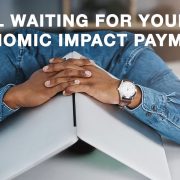

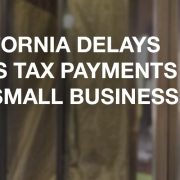
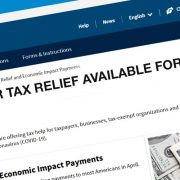

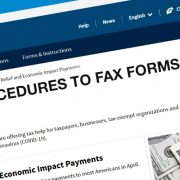

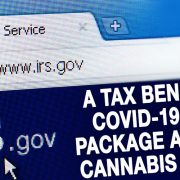
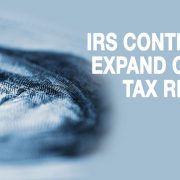
 Follow
Follow Follow
Follow